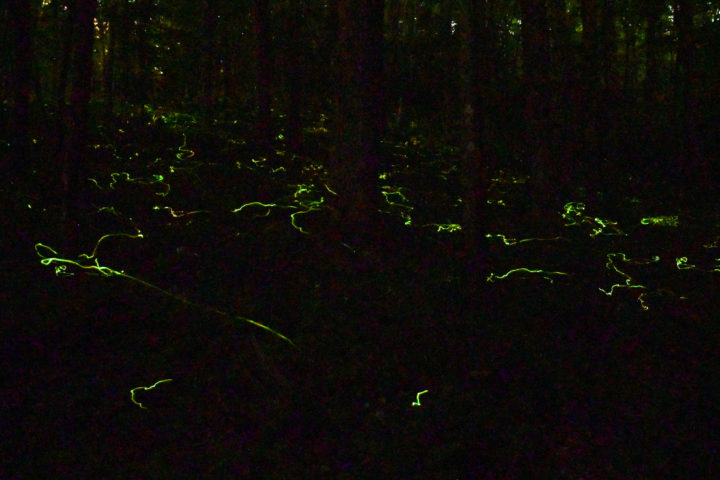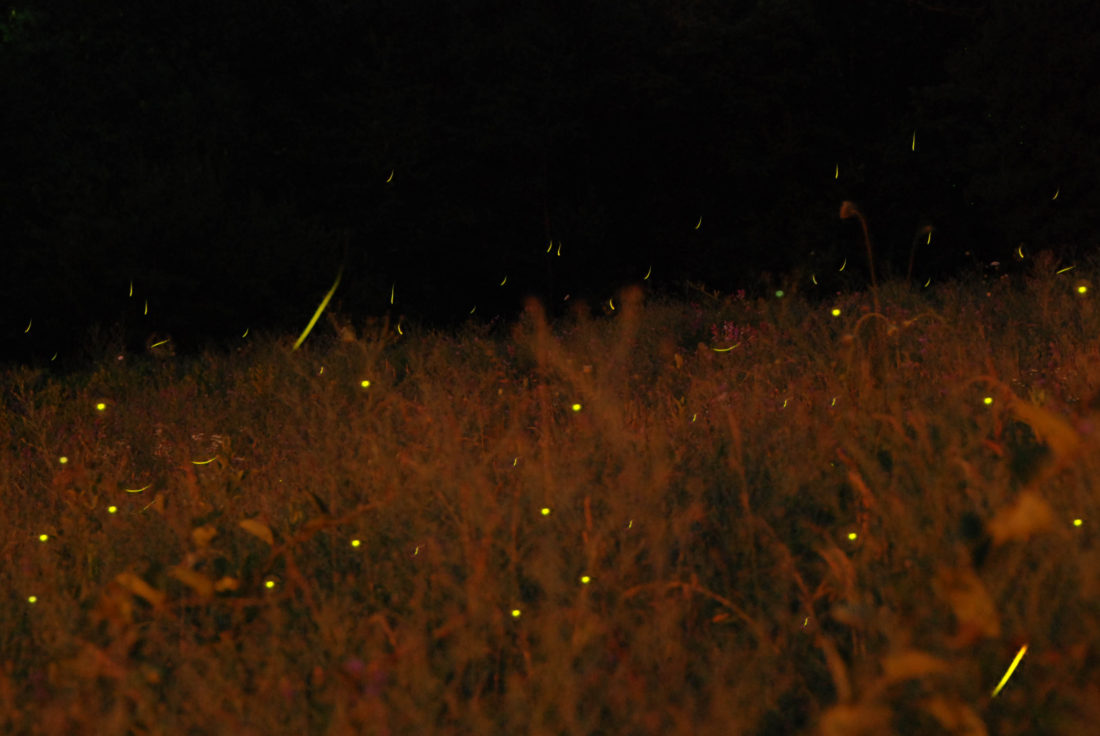I have a T-shirt with text on the front that reads, “Every day needs a night.” I was thinking of this recently as I drove home from a friend’s house one night after 10 p.m. On my 30-minute drive, I traveled several winding, two-lane roads, through forest, field and farmland. Though each road may have had a different name and different kinds of houses and people, they shared a commonality: Many yards and houses were lit up like day. Between Duke Energy dusk-to-dawn lights on 25-foot-high poles, floodlights, mood lights, solar lights and everything in between, the night is no longer dark in most places in our corner of Western North Carolina.
Why must we humans light up the night? How can it be that we no longer value darkness or consider our impact on our indoor or outdoor neighbors? Many people are not aware that their lights are a problem. Many have never heard of the terms light pollution or light trespass. They simply do what’s always been done. Perhaps some do it because they know nothing about the night and thus are afraid of it, afraid of nocturnal animals or people with bad intentions.
But the International Dark-Sky Association and others have shown that bright outdoor lighting at night doesn’t make us safer. Criminals actually use the lights to their advantage, giving us a false sense of security. And nocturnal animals like bears, coyotes and bobcats only want to avoid humans; if we leave them alone, they will return the favor.

I beg anyone reading to consider the negative impacts their lights are having on the plants, animals and people near these lights. According to the Astronomy Club of Asheville, “Human-produced light pollution mars our view of the stars, and poor lighting threatens astronomy, disrupts ecosystems and wildlife, affects human health and circadian rhythms, creates unsafe glare and light trespass, contributes to climate change, and wastes money and energy to the tune of $2.2 billion per year in the U.S. alone.” Scientists everywhere are sounding the alarm about light pollution, and what do we do? Install more and brighter lights.
Next time you step outside after dark, look around. Outdoor lights are everywhere, stealing the darkness, silently, little by little. We install them on every street corner, every highway, every building, junction, business and house. Even properties like mine, away from the city and in the woods, are not immune to light pollution. Just 100 years ago, the average person anywhere on Earth could look up and see the Milky Way stretched across a sky dotted with stars. Now most of us can’t even step outside of our own homes and have darkness, much less see the Milky Way.
I am heartbroken for the plants and animals that have no chance against this light pollution. People can shut out the lights with blinds, walls and doors, but animals and plants have no such luxury. When will we stop acting as if we are the only ones on this planet? Fireflies can’t compete with the bright lights. They fail to successfully reproduce, not able to find each other in the lit-up night. Bright lighting at night confuses migrating birds. They waste precious energy traveling in the wrong direction and have collisions with buildings. Moths and other insects are attracted to the lights, flying around aimlessly, exhausting themselves and dying before ever reproducing. Bats avoid the lights, not wanting to risk predation, causing increases in mosquito populations. Trees exposed to constant night lighting have shorter lives. Light pollution is negatively impacting biodiversity and function of entire ecosystems.

It’s easy to contribute to the solution instead of the problem. Put outdoor lights on motion sensors so they come on only as needed. Point essential lights downward, install shields, choose bulbs with a lower wattage, yellow wavelengths over blue or white, or best — and easiest—of all, just flick the switch to off when you’re not using them. It’s one simple thing everyone can do. Let’s start tonight.
— Sharon Mammoser
Arden
With a passion for all things wild, naturalist and photographer Sharon Mammoser has made it her mission to inspire others to notice, appreciate and ultimately protect the plants and animals that share our backyards and wild spaces. For more information, including about blue ghost firefly tours in May, visit NatureForMySoul.com.






Excellent letter. Hopefully there will be fewer night lights thanks to you.